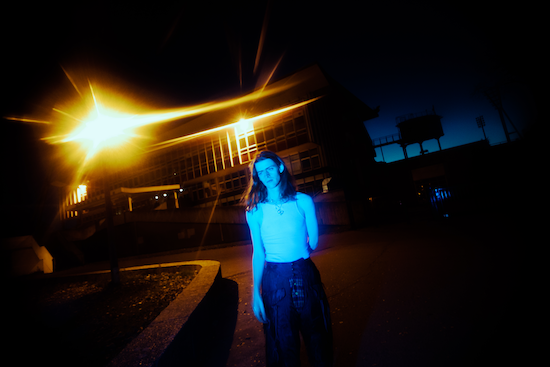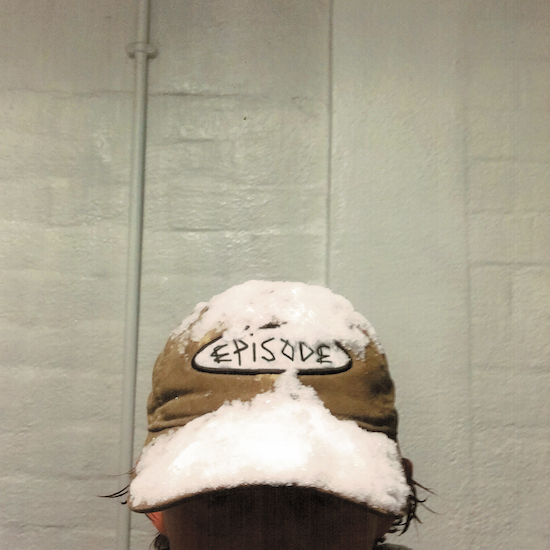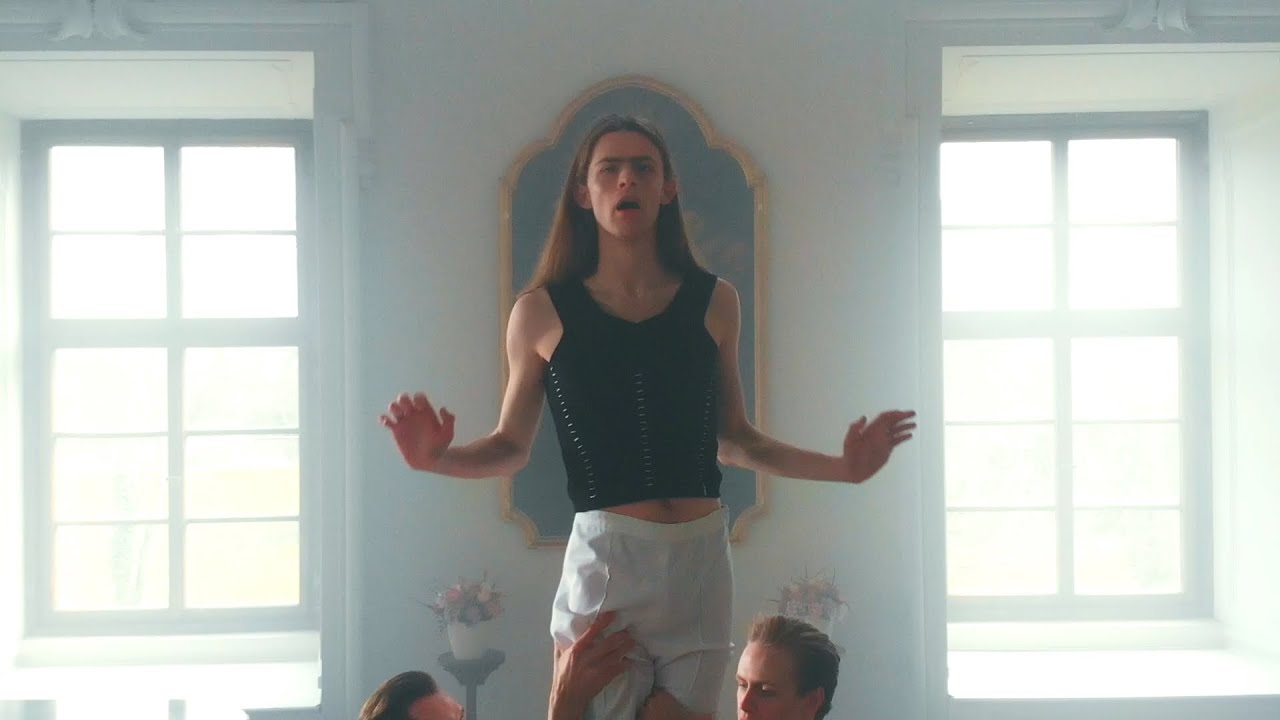Ben Gregory, formerly the frontman of the Hampshire indie band Blaenavon, has shared details of his debut solo album, Episode.
The record, which sees Gregory depart the indie rock of his former band in favour of multi-faceted experimentation, follows a period of major personal upheaval. Around the time of Blaenavon’s disintegration, the musician spent time in psychiatric hospitals. Written during his recovery, and recorded with producer Blaine Harrison of Mystery Jets and engineer Matt Twaites, much of Episode concerns this period in Gregory’s life.
You can watch a video for the album’s lead track and centrepiece, ‘Blue Sea Blue’, above. Directed by Natàlia Pagès, it features Gregory alongside the Czech National Ballet.
Ahead of the album’s release, Gregory has also shared an essay exclusively with The Quietus, in which he details his experience of living with Bipolar I disorder while simultaneously navigating the music industry.
Toothpick Monolith: Bipolar And The Music Industry, by Ben Gregory
Bipolar. I don’t know if it’s something you have or if it’s something you are but it’s definitely a disease and definitely not a USP. In promoting my new album — and indeed in the act of writing this essay — I have felt saddened and slightly ashamed that it seems necessary to publicise my private pain in attempting to appear unique. I’m not. So many people get sick in this way or in similar ways. I’m sorry if you’ve suffered so and I commend you for rebuilding your life onto what is certainly fractured ground. The support I received from my family, from Transgressive Records, through therapy and from Help Musicians UK was astounding and unforgettable. Please find information below this article about music industry-specific support networks.
The ward is a custom hotel for boys whose sleeping credits have been maxed out. Each door has the clockwise lock of an aeroplane bathroom. Each lock can only be turned from the inside, though there’s a keyhole on the out-. The keys hang from a chain that itself hangs from the crabbish middle/index finger grasp of a former headmistress whose gaze effects a toxic ill-feeling. She’s the kind who offers the ultimate fuck you of a thumbs up.
My moods feel extremely intense but I’m sure yours do too. Without a tangible mode of comparison it’s very difficult to understand what a ‘normal’ emotional breadth would feel like. I often hear sexy TV peeps and café psych-experts refer to themselves as ‘just feeling emotions really intensely’. This has always annoyed me really intensely because it implies some insight into how others frame themselves against the world, as if emotionality fits on the same scale as height, weight or Spotify streams. I’m trying not to sound bitter: I take issue with this on a human level and (hopefully) not as a ‘sufferer’ who wishes to brandish any kind of exceptional clinical capital. I don’t know how you feel.
Bipolar Type I is the precise name of my affliction. It is characterised by mood fluctuations in a similar way to both Bipolar Type II and Cyclothymia: the difference is the extremity of the upper — or manic — end of the scale, which — at least once in a sufferer’s lifetime — will evolve into a full psychotic episode. I believe that I displayed symptoms of mental illness in my mid-teens, but even as recently as the early 2010s understanding of such disorders was far from ubiquitous. I aggressively hoarded stamps, receipts, scraps of paper of which I had no use, whilst my former bandmates would certainly confirm swiftly forming phases of irritation and bitterness (which maybe just seemed like the norm of a grumpy teenager). I don’t mean to make excuses for it — I could be a real arsehole — but there was certainly something making me so irritable that I couldn’t quite pinpoint. I perhaps experienced relatively notable bursts of joy — for example when making music, playing shows, partying — but not really anything I would deem excessive. I would occasionally behave quite erratically, but it’s worth noting that I was a teenager, let loose in London and loaded with deliciously free backstage beer. Indeed, I would certainly consider my relationship with Bipolar to have been more coloured by its depressive phases than by any real ecstasy; that is, until I experienced my first manic episode in winter 2017.
You ride mania like a wave you feel will never break. Maybe in hindsight I can pinpoint my brain’s gradual escape from any recognisable parameters, for ‘gradual’ it was. I started to see a beauty in things I’d otherwise overlooked, or at least underappreciated: landscapes, poems, friendships, shows. Rather than feeling like I was losing control, it was more that the exterior world was granted a new clarity; like it’d be blurry or distorted all along but now finally made sense. There was a new profundity to performance, to my life as an artist and indeed an intense new sense of purpose. But your brain can’t fire the good juice at you forever: an overdose of happiness of course results in a follow-up drought of same. People who’ve witnessed the lengthy, painful recovery from such episodes of course can’t understand why a sufferer might say it was amazing, or indeed that they don’t regret it. Not that it means anything, but I don’t think I do regret it. I lost a lot — time, friendships, confidence, career, youth — but the chaos of mania was profoundly illuminating regarding my relationship with myself and what I hold to be important. Part of that was the utter essentiality of music.
The year is 2018. It is the third day of the sixth month of this sweet, sweet Gregorian system. A system to which I claim ancestral ownership: my namesake removed to the nth degree. The calendar kid they called me at school; well, they could have done. The calendar kid: smiling politely; the floppy wrists of a T-rex; teased as a foreshadowed Raheem Sterling but this time for the pretextless fact of the wrists themselves. In later life I would be commended for this very floppiness. A man-child with the silken locks of a post-greebo and an unplucked brow that foresaw Autumn/Winter High-Fashion. This wrist is positioned in a fraudulent display of chin-support, digits dangling in the angle between swan’s head and starved rose. An image printed on gloss. I’ve never felt closer to myself.
An inward-facing temperament lends itself to song-writing. But there exists this damn senselessness in documenting that which you wouldn’t even privately share and then unleashing it onto the monolithic internet public: offering thinly veiled cries for help in Lossless form; parading one’s particulars with a narcissistic gloss; or — god forbid — exploring a theme beyond your own bulbous, throbbing brain. Every buzzy artist has offered the first ever interview proclamation that ‘we just make music for us and if anyone else likes it then that’s a bonus’. At risk of sounding crass or glib or one of the other monosyllables that I don’t really understand, I’m flagging this type of claim because, as tired as it is, it’s hopefully true. The song-writing journey begins in the bedroom and it ends, inevitably, in the bedroom. Maybe there have been some proud moments in between, maybe not, but you write because you must. The pain I was in as a teenager and, to be frank, the pain I’m in today, can be tempered and — in the long term — resolved through care, self-exploration, therapy and other means of support, but — in the short term — the only catharsis I’ve felt is in the act of singing the suffering into something beautiful. Phases of intense illness — both depression and mania — are sublimated from their state of lost time by the art which stems from them: at least that’s how it feels to me. My hard drive is a mammoth sonic diary of ever valuable attempts to overcome painful times. It’s not an exclusively-bipolar-thing, but in my life it has been of exclusive worth as an ear that is always available, whatever the hour, whatever the mood. It’s the only real way I feel at home inside myself.
I spread myself so thin against the sky and wish the world good health.
Handing over ownership of these intensely personal artefacts is an unreconcilable dilemma. Each MP3 is a piece of me, endangered in its exposure to the outside world. The act of releasing music itself mirrors in a way the bipolar cycle: the frustration, irritation and pain of the battle who takes shape as composition/recording; the life-affirming joy when you witness your vision realised in full colour; the self-loathing when, maybe a year later, the release date approaches and you now despise the song; the prideful satisfaction when people you really care about relate to what you’ve made; the epic comedown that follows when your moment in the sun is over. This exhausting process then reproduces itself on a daily basis when you take the songs out on the road.

I burst into tears in the embrace of a school friend. He’s stroking my hair and saying ‘oh Ben’ in a tone so parental that I can’t even let myself hear it. I have achieved everything I’d dreamed of as a child, yet it hurts unnameably.
The musician’s life becomes inescapably characterised by the dire dichotomy of excruciating periods of anxiety — the travel; the soundcheck; the oppressive placelessness of the music venue; the agonising backstage clock-tick — vs. the utter euphoria of performance. I remember sometime in 2016 when my former band and I played the Manchester venue Gorilla. I was deeply moved and felt, in a very rare way, blessed that 500-odd people bought tickets and filled up that room just to see us. Those young people knew every word, even the most absurd, and it was wondrous and absolutely terrifying to witness that array of vibrant teenagers annihilate each other at the ‘big bit’ of a song I’d written when I was 15. For 90 minutes each evening I felt more seen and understood than in any other moment in my life. But I’d come to life by summoning up some braver self and he was harder to find each night that passed. I love it and it loves me but it’s not me and it is: if you need a stage in order to feel like you’re not performing, then there’s a problem. One’s outlook on life, and what’s inherently important thereto, gets merged with the exploitative marketing of oneself as a product, conveyed in a van around the UK between venue and Travelodge. There formed a split sense of self whose manifestation pushed unpreventably. I’d perform, then chat to the beautiful people who’d come to the show, then slink off somewhere in tears. The performer and the person faced a cursed coexistence, indeed to the extent that I second-guess whether or not my crying was itself ‘put on’. In attempting to outrun fraudulence I became evermore streamlined, giving away greater and greater pieces of myself each evening until there wasn’t anything left.
I am grabbed as an object. A man in white on each arm; ankles collapsing beneath; body weightless as mind; a trail of drool revealing where I was and where I’m going. It is the first time I have known terror and I can’t make a sound. I struggle but cannot speak but I’m screaming but the violence swims. Pressed against white sheets, half-naked, hard crying. I feel it enter and I don’t understand. Sleep is coming but it is no sleep I ever want to see. I know this from somewhere. It has already happened and it is happening and I know it will happen. I fade in the shadow of two men.
I am very lucky. When I was first hospitalised around Christmas 2017, I had a visitor every day. I feel like that is very rare. We formed a community within the clinic on the basis of shared outsidership, speaking in invented languages that at the time made perfect sense. On the chance that anyone who was there is reading this now, I’m sorry if I broke into your bedroom. It’s a strange feeling for your brain to be overstimulated to the extent that it must create for itself new parameters. In psychosis, you are pushed to the extremes of despair and euphoria, though in this conflict you experience rare and intermittent moments of clarity. I’m sure it does not appear that way from the outside, but to mad old me what occurred was deeply moving emotional revelation, years of intertwined suppressions bursting forth in full colour. Time moved twice as quickly; I made connections between subject areas never before paralleled; I obliterated my sudoku personal best only using the number nine and fought for this as a valid and indeed profound solution; I sent some very bad texts to Yannis Philippakis. But, I was never alone. My family, my friends, and every day a member of my surrogate kin at the label. Thank you for the letters and thank you for the LEGO.

Somehow daylight didn’t fully arrive, sort of getting lost on its way. Frail shades of sky blend with a clinical strip-light white to make a sort of timeless consistency that doesn’t really mean anything. It’s only when visitors arrive that you are reminded of the structure of day: they seem to smuggle lumens in, but it’s a lend not a give. Most of the light is now coming from the TV screen, gently refracted in the vertices of its protective plastic casing. If you squint a little it feels like 3D.
Each time I go to write my experiences down, it comes out as comedy. I don’t know if this is a coping mechanism, if it’s healthy, or if anyone else finds it funny. Well actually I know that Lachlann finds it funny. But I promised myself to mourn but never to wallow. This illness, if we must call it that, has offered uncountable new waves of inspiration and, perhaps most importantly, a profound sense of belonging. When I meet someone who has suffered in a similar way I feel understood and I feel proud. At times I get very down that things were going so well for me and then suddenly it stopped, but behind the indie shimmers I wasn’t having a very nice time. I want to feel heard, appreciated and understood and, despite everything that happened on the first attempt, I cannot beat this craving for just a little bit of stardom. It’s a crooked fascination and a lose/lose game. You take the tour losses to promote the album and then take the album losses to promote the tour. But much more vicious than this circle is the idea of not doing it all. I’ve been very quiet for a long time, studying, writing and recovering. I’m excited to be back and to be blessed by minimal pressure and maximum support. The second Blaenavon album was about getting better. The third was about getting better. My new album is about getting better. It seems there’s only so much I can sing into being, but I’m damn well going to try.
Transgressive will release Episode on April 7, 2023.
For music industry specific mental health resources, read below.
Touring and Mental Health: The Music Industry Manual, edited by Tamsin Embleton
Royal Society Of Musicians Of GB, grants provider for physical and psychological therapies
Help Musicians UK, grants provider and helpline
Music Industry Therapist Collective, psychotherapists and psychologists
British Association for Performing Arts Medicine, GPs and therapists



